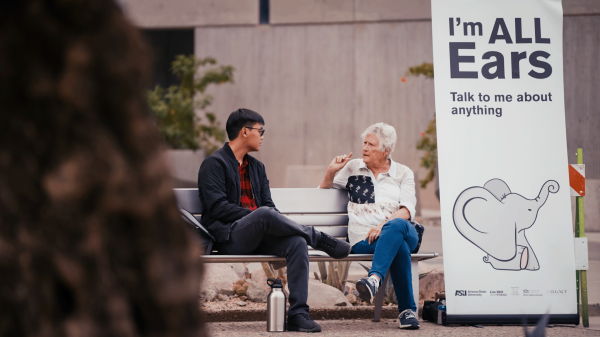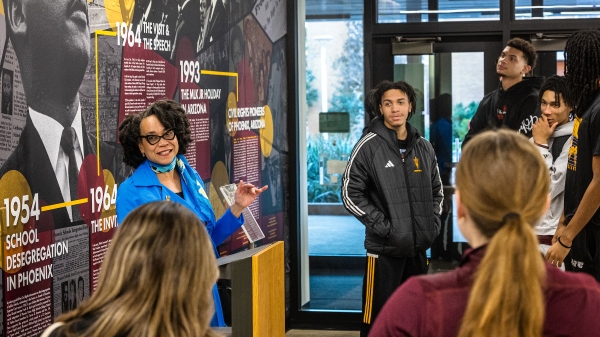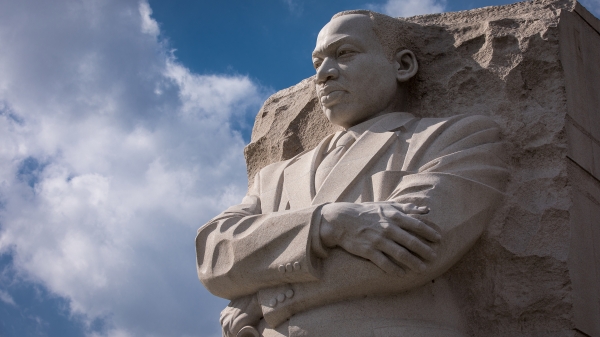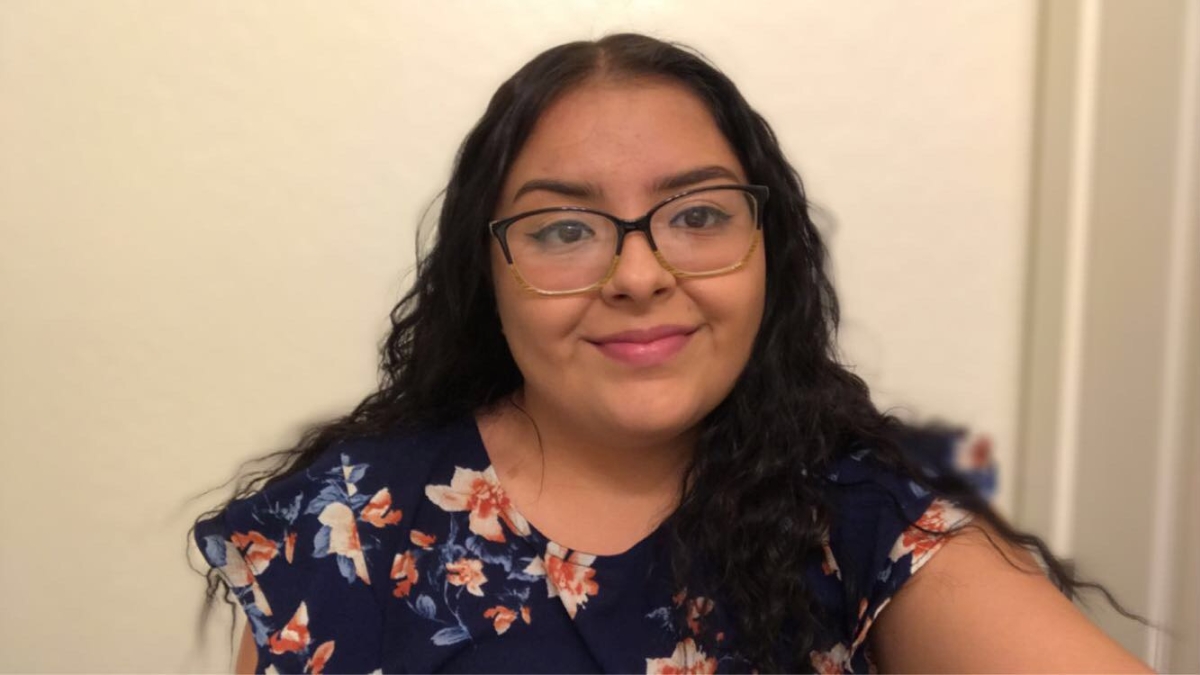Editor's note: This story is part of a series of profiles of notable spring 2020 graduates.
For Anahi Parra, education is a path to a job that doesn’t feel like a job.
Parra graduated last week with a degree in criminal justice and a minor in social welfare from the Watts College of Public Service and Community Solutions. Parra aspires to one day work as an FBI agent, Border Patrol officer or a probation officer.
She got a headstart on her career experience working as an intern for the Maricopa County Adult Probation department in the Presentence Investigation Unit.
“I was taking DNA samples. Anyone who’s convicted of a felony, they have to submit to a DNA test. So that’s what I was doing. It was pretty fun,” Parra said.
Parra made the most of her ASU experience. She enjoyed attending career fairs, worked in the Education at Work program at ASU and even studied abroad in Costa Rica for a summer semester.
A Phoenix native, Parra has always wanted to give back to her community and be out in the field making an impact.
With her undergraduate years at ASU now complete, Parra reflected on how her journey began and where she plans to go next.
Question: What was your “aha” moment, when you realized you wanted to study the field you majored in?
Answer: I feel like ever since I was in high school I knew I wanted to help out my community and give back, because in high school I would volunteer a lot with St. Mary’s Food Bank or St. Vincent de Paul. I also knew deep down that I didn’t want to become a social worker because that's not what I was interested in.
So throughout high school, that’s what really motivated me to figure out that I wanted to be a criminal justice major and also because I want to be out in the field doing something. I don’t want to be in an office doing case management or anything like that. I want something exciting and fun and basically feel and know that I’m working but it doesn't feel like I'm working because I love my job so much.
Q: What’s something you learned while at ASU — in the classroom or otherwise — that surprised you or changed your perspective?
A: I feel like from a personal standpoint, ASU has taught me how to save money. My freshman year I was buying lunch on campus every single day and you know, keep in mind, I didn’t live on campus, so I didn’t have a meal plan. I didn’t have a car, so I was spending money on transportation. Then toward my sophomore year I started to meal prep.
I also studied abroad last summer in Costa Rica. When that happened I had to save money because (even though) I had scholarships for the trip to be paid for, I still needed to save for spending money or emergency money. So, ASU really taught me that I should not only rely on financial aid to pay for everything; it was my responsibility to save money.
Q: Why did you choose ASU?
A: Well, initially when I graduated high school, I didn’t even think about going to ASU. I just thought about going to community college and then transferring to ASU. I mainly thought that I wasn’t even going to get financial aid from ASU because my grades were OK, but not straight A’s.
Also, I was scared to start off at a big university. But my mentor, she's the one who encouraged me to apply. She was like, "just do it, you never know if you'll get a scholarship.” So, I did, and I got a grant and here I am.
Q: Which professor taught you the most important lesson while at ASU?
A: One professor right off the bat is Professor Eric Johnson. He's my internship coordinator, and I had him in some of my previous CRJ classes. He is always pushing us to do our best no matter what.
Also (academic success coordinator) Shonda Hertle. I keep in close contact with her. I’m always asking her just random questions and she’s never denying me or telling me to go to someone else. She’s always there for me and she’s always providing a lot of resources.
Q: What’s the best piece of advice you’d give to those still in school?
A: I would say work hard and go to any ASU event, even if you go by yourself because more than likely someone else will be there by themselves, too.
Work hard. Especially if you’re first-generation, you need to bust your butt to do everything you can to make your parents proud or to make yourself proud. That’s mainly why I did it.
And especially because no one wants to be up at one o’clock in the morning doing projects. That’s one thing that I’m glad I don’t do. I don’t do all-nighters to finish my homework. I am mainly on top of everything. So, I feel like if the students start off with that their freshman year, it’ll continue on as a habit so they’re not all stressed out, adding more stress on top of what they’re already feeling.
Q: What was your favorite spot on campus, whether for studying, meeting friends or just thinking about life?
A: Well throughout my four years I traveled back and forth to the Tempe campus and the Downtown Phoenix location. I would say for the Tempe campus, I really enjoy just staying in the library and just chillin’. Even if it wasn’t for homework, I can go in there and take a nap and no one will tell me anything or I can go in there and eat food.
Then in the Downtown Phoenix campus, I really enjoyed staying in the Student Center. I liked all the nice furniture that they have and they always have events there. I can always just hang out with my friends and not even do homework, just chill until the next class.
Q: What are your plans after graduation?
A: Well, I had a trip planned but it was canceled because of the coronavirus. I had a service learning trip to Spain, but like I said, it was canceled. I think as of right now, I do want to try to get a higher position, where I am currently working, in the meantime while I apply to other jobs and wait to hear back from them. So I’m really striving to get to a higher position so I can work full-time with them and then just apply everywhere else.
Q: If someone gave you $40 million to solve one problem on our planet, what would you tackle?
A: Extreme poverty in Third World countries and education. I really like and am fascinated with the service agencies that go out to rural countries and build houses and build schools and then teach all those kids. I feel like more funding should be provided to them just across the United States and across the world, anywhere in general. I feel like that’s super, super important. Also, a little more funding with providing more supplies to young girls like, giving them more feminine hygiene products.
Written by Carmen De Alba Cardenas, Sun Devil Storyteller
More Sun Devil community

ASU connects younger, older generations to ease loneliness
When Pencie Culiver sits down on a bench every Tuesday outside Coor Hall, the students are drawn to her and her big sign that…

Local athletes get crash course on Black history in Arizona
Basketball players from Arizona State University and the Valley Suns gathered on Jan. 6 to learn about Black history in Arizona…

ASU names 2025 MLK Servant-Leadership Award recipients
The 2025 honorees have been named for Arizona State University's annual MLK celebration awards.The four awards — community,…
